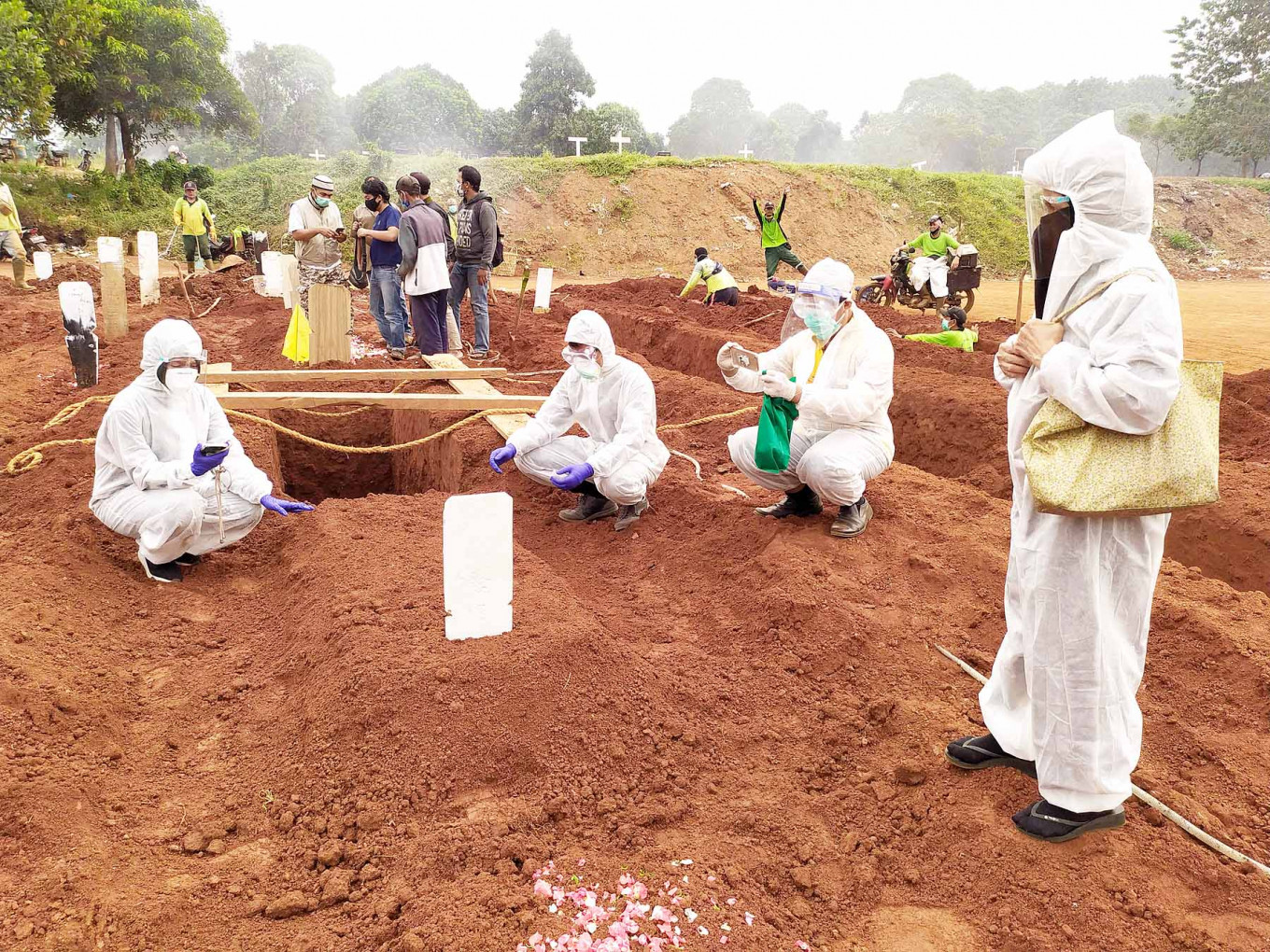Popular Reads
Top Results
Can't find what you're looking for?
View all search resultsPopular Reads
Top Results
Can't find what you're looking for?
View all search resultsDoing the right thing
If the central government and the Jakarta administration cannot get their acts together, the upcoming PSBB will be an even more painful period for everyone.
Change text size
Gift Premium Articles
to Anyone
J
akarta Governor Anies Baswedan has finally decided to reimpose large-scale social restrictions (PSBB) in the capital, after the administration failed for weeks to curb new cases and fatalities. Beginning on Monday, all workplaces, except for essential businesses, must close down and public activities will not be allowed. The policy puts a halt to a so-called transition period that saw many offices, malls and public places reopen.
A return to the partial lockdown contradicts the central government’s zeal for economic reopening, which ended up triggering a surge in cases and deaths, especially among medical workers. Of course, the bold measure is based on data and real developments during the public health emergency, which suggested that Jakarta’s health system would collapse if the emergency brakes were not pulled.
But Jakarta’s tough policy is doomed to fail without support from both the central government and neighboring regions. If, for example, the central government does not help by limiting travel in and around the capital, there will be little chance of containing the pandemic.
Jakarta has reported a positivity rate of 12.2 percent over the past week, more than twice the rate of 5 percent or below recommended by the World Health Organization for relaxing restrictions — after the city met the WHO’s minimum testing rate of one test per 1,000 people per week.
It had recorded a positivity rate below 5 percent a week before the transition period began in June, and that is the point that should be achieved by the administration if it plans to reopen again in the future.
If the central government and the Jakarta administration cannot get their acts together, the upcoming PSBB will be an even more painful period for everyone. Businesses, especially small ones, will suffer even more while the city’s healthcare system, which has seen more patients and sick medical workers, will no longer be able to shoulder the burden of the outbreak.
A joint study from Social Resilience Lab, Nanyang Technological University (NTU) and the LaporCOVID (Report COVID-19) community shows that the healthcare system in Jakarta may collapse by the end of the year without massive intervention to curb transmission of the disease.
The modeling, which analyzed data from Aug. 1 to Sept. 3, predicted up to 3,000 deaths by the end of October as more people requiring hospitalization would be unable to get treatment because hospitals would run out of beds.
President Joko “Jokowi” Widodo should get himself onboard with implementing stricter public health protocols, including the possibility of imposing PSBB measures in high-risk areas.
“Good health will lead to a good economy,” he said on Monday.
He is already choosing the right words, but we are still waiting for him to choose the right course of action.










